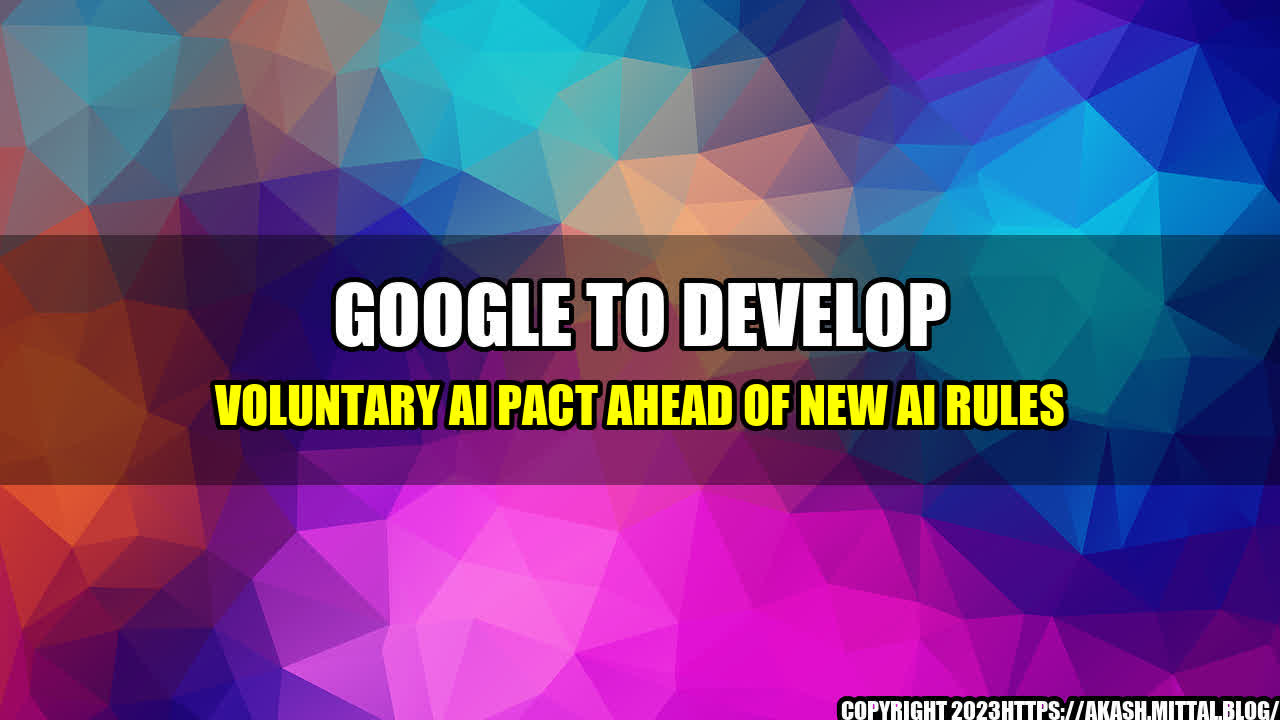In recent years, there has been growing concern among the public and policymakers about the use of artificial intelligence in various industries, including healthcare, finance, and education. Some fear that AI could automate jobs and displace workers, while others worry about the potential for bias and discrimination in AI algorithms.
According to a recent study by McKinsey, AI could contribute up to $13 trillion to the global economy by 2030, but that growth is not guaranteed. To ensure the responsible development and deployment of AI, the European Union has proposed new regulations that would require companies to disclose how they use AI and to avoid any unintended consequences that could harm workers or consumers.
One company that has been leading the charge in promoting responsible AI is Google. In 2018, the company published a set of AI Principles, which established guidelines for the development and deployment of AI products and services. Now, in anticipation of the new EU regulations, Google is working on developing a voluntary AI pact that would encourage other companies to adopt similar principles.
Google takes a proactive approach to AI regulation in the EU: Developing a voluntary AI pact ahead of new AI rules
and Case Studies
One of the challenges of regulating AI is that the technology is constantly evolving, making it difficult for policymakers to keep up. Google's voluntary AI pact could help to fill this gap by providing a flexible set of guidelines that can be updated as needed. The pact could also encourage more companies to take a proactive approach to AI regulation, rather than waiting for government mandates.
Another potential benefit of the pact is that it could help to build trust among consumers and stakeholders. By committing to responsible AI practices, companies can demonstrate that they are aware of the potential risks and are taking steps to mitigate them. This could ultimately lead to increased adoption of AI technologies, as more people feel comfortable using them.
Practical Tips
- If you work in a company that develops or deploys AI technologies, consider adopting Google's AI Principles as a starting point for your own responsible AI guidelines.
- Be transparent about how you use AI in your products and services, and be proactive about addressing any potential biases or unintended consequences.
- Look for opportunities to collaborate with other companies and organizations to promote responsible AI practices, such as Google's voluntary AI pact.
Conclusion
- Google's voluntary AI pact could help to promote responsible AI practices among companies.
- The pact could also help to build trust among consumers and stakeholders, ultimately leading to increased adoption of AI technologies.
- By adopting responsible AI practices, companies can demonstrate their commitment to mitigating potential risks and promoting ethical AI development.

Curated by Team Akash.Mittal.Blog
Share on Twitter Share on LinkedIn